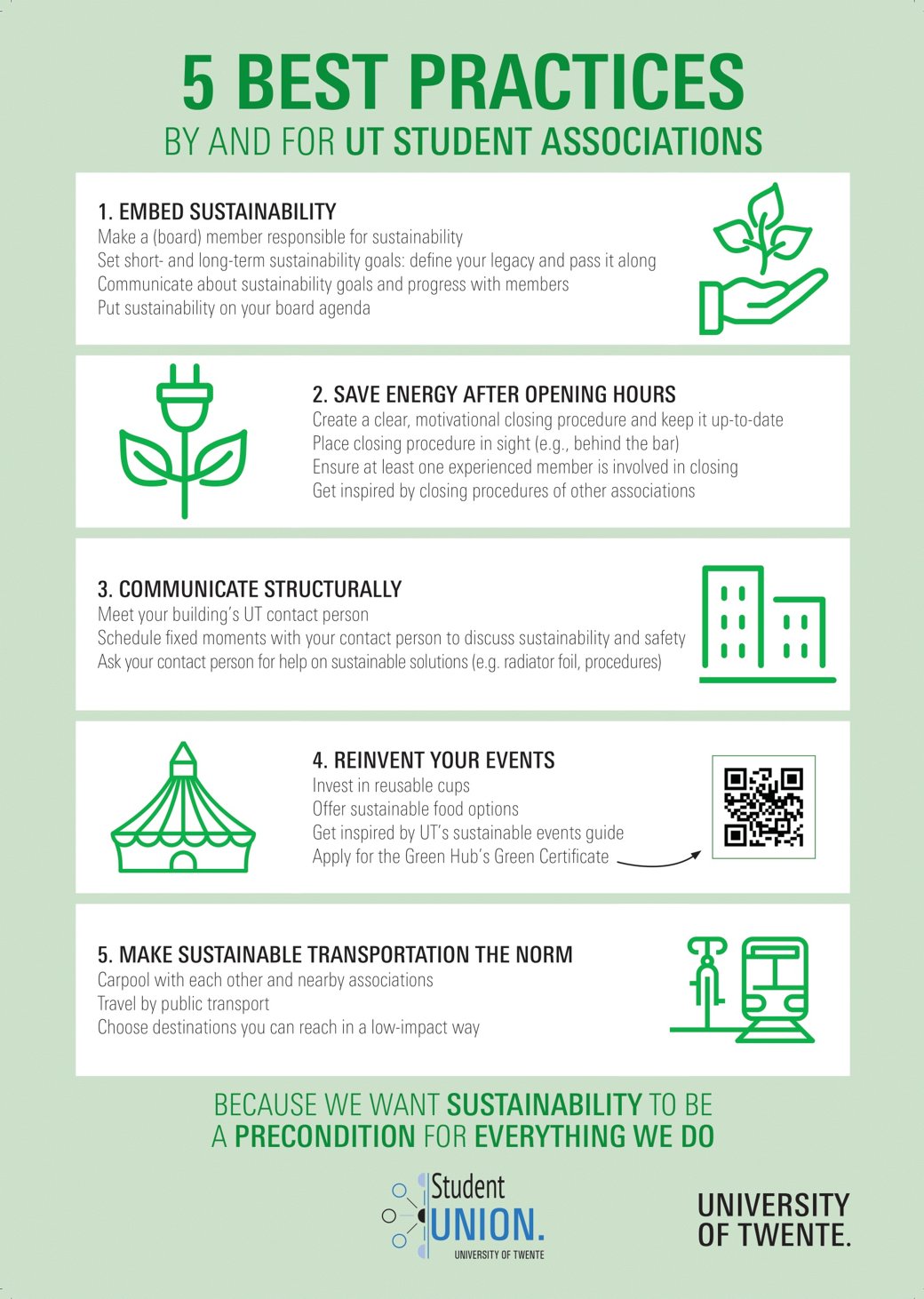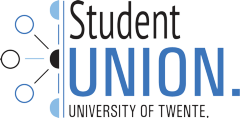The University of Twente is making significant strides in becoming a more sustainable organisation. To gain a comprehensive understanding of sustainability across the institution, three Young Professionals (academic policy trainees) have investigated how sustainability is integrated within UT student associations that own their own buildings.
Our university consumes a substantial amount of energy daily. UT actively works to minimise the impact of this energy consumption on the environment and climate. At the same time, student associations — encouraged by the Student Union — are increasingly focusing on reducing their ecological footprint.
The research
Over the past six months, the Young Professionals at UT have examined the energy consumption of student associations with their own buildings, as well as the influence of their behaviour and the collaboration with CFM (Campus & Facility Management) on this consumption. As part of this study, the university’s Energy Data Platform was analysed, which provides insight into the energy usage of nearly all buildings. The analysis revealed that student association buildings currently consume a relatively high amount of energy. Several factors contribute to this.
Interviews were conducted with stakeholders, including association boards and UT staff. These discussions showed that both students and employees are open to contributing to the university’s sustainability goals. Even though associations are making progress, there is still room for behavioural improvements. Additionally, postponed renovations or construction projects have created a sense of powerlessness among students. Lastly, the study highlighted that collaboration and coordination between student associations and the university can be strengthened.
Best practices
Based on discussions with associations, a poster featuring best sustainability practices for and by student associations was created. This poster will be shared with all student associations that own a building and will also be made available to other student and study associations.

The key to success? Embedding sustainability into the organisation. If one board is highly committed to sustainability but fails to pass on its knowledge effectively, progress will be lost, and changes will not be sustained. Another important tip: strictly following building closing protocols to prevent wasting energy after operating hours. Since association activities mainly take place outside regular working hours—when UT staff are usually not present—clear communication within the associations is even more crucial. Lastly, associations can obtain a Green Certificate to organise their events sustainably.
All involved colleagues and students were invited to discuss these findings during the final presentation. During this session, valuable ideas were shared, which both staff and students will take forward supported by the Student Union.
SUSTAINABILITY AT UT
Sustainability is an important priority area of Shaping2030, the University of Twente’s strategic plan. In addition to finding sustainable solutions for societal issues, the UT wants to set a good example of what it means to be a sustainable organisation. To reach this goal, the ambitions of Shaping2030 need to be put into practice. Many members of the UT community are hard at work translating the sustainability objectives into our work on campus – transforming the way we work, teach, learn, travel, build and more. In this series, we invite them to talk about what motivates them, what the role of sustainability is in their day-to-day work, and what they would like to achieve at our university.
Want to find out more about sustainability at UT? Please go to utwente.nl/sustainability.
